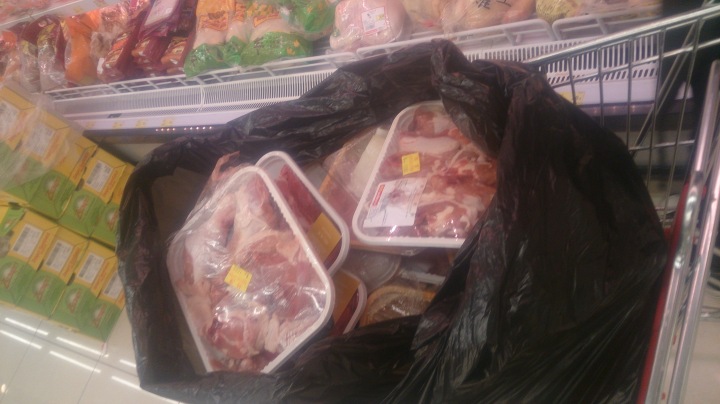
While strolling through a Wellcome supermarket one evening, I saw the staff removing 30 or so packs of unsold meat from the fridge, and putting them in a black plastic garbage bag. I asked whether it was going to be thrown away as trash. The friendly worker nonchalantly replied “yes”, as if it was the most normal thing in the world.
These packs of unsold meat, sitting in foam trays and enclosed in plastic wrap, will be sent to the nearby landfill. There, they will decompose anaerobically, emitting a horrendous stench and methane, a greenhouse gas at least 20 times more powerful than CO2.
In 2012, research by Friends of the Earth (FoE) revealed that Hong Kong’s supermarket chains were throwing away tons of food everyday. FoE estimated that the big four supermarket chains: ParkNshop, Wellcome, China Resource and Jusco (now renamed Aeon) combined were sending 87 tonnes of food to the landfill each day. According to FoE, “In a year, the food they throw away is equivalent to the weight of two thousand double decker buses.” Of that amount, one third is bread, vegetables, fruits and even sushi that is still edible. Two thirds consists of peel and expired food which they classified as non-edible (However, as John Oliver explains in this hilarious segment, the expiration dates set are quite arbitrary and most food is still edible well past the expiration date). Continue reading “Meat Free Landfills”










